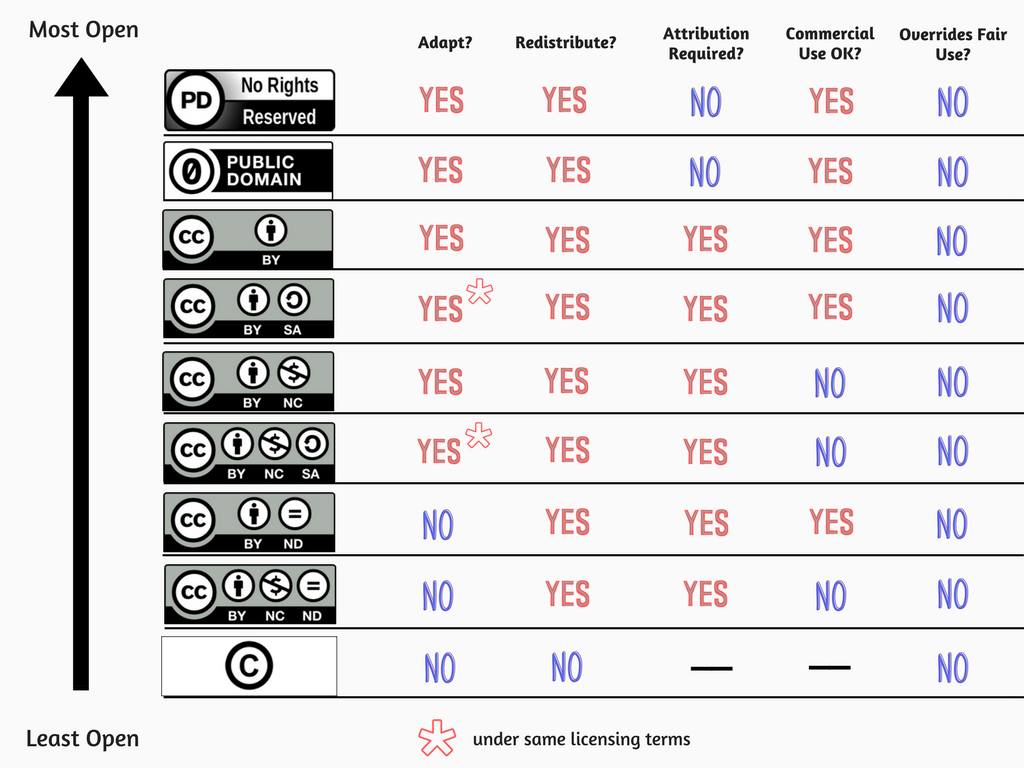What is Creative Commons?
With the rise of networked communication, many authors and creators have sought to clarify which uses of their intellectual property they are happy to allow without being asked for permission. Creative Commons licenses allow them to specify which uses they permit and under what conditions. Additionally, these licenses are machine-readable, which means aggregation sites (like Google and others) can sort content by license type, which makes it much easier to find content that may be used for free.
Creative Commons does not replace or annul copyright. CC-licensed content still belongs to its creator, but specific uses are permitted to the public under each CC license type. Some are very permissive and some are more restrictive.
All CC licenses are “within the boundaries of copyright law.” The least restrictive license (CC-BY) only requires attribution to the content-creator (referred to as licensor), whereas other combinations address derivative, noncommercial, and share alike (requires derivatives to have the same license as the original) provisions, in addition to attribution. Based on your responses, the CC website will suggest license types and, if needed, provide HTML code that can be added to a webpage.
Benefits of using Creative Commons content in instruction
You can also use CC-licensed content for instructional purposes, such as inclusion in course packs or course management software, like BlackBoard. When you use CC content, time spent searching for a copyright owner to ask permission to reuse, remix, or share “All Rights Reserved” content is channeled to research, create new works, or teaching.
Here’s an infographic to help explain what is permitted and required by each license (in context with public domain and standard “all rights reserved”). Licenses are organized top to bottom from most open to least.

A complete list of CC-license types and conditions can be reviewed at the Creative Commons organization website.
You can create a CC-license for your own original content as the Creative Commons organization website, too.
You can determine which CC licenses are compatible with each other with the web2rights Creative Commons License Compatibility Wizard.
For help creating well-formed Attribution Statements, consult the Open Attribution Builder tool.
